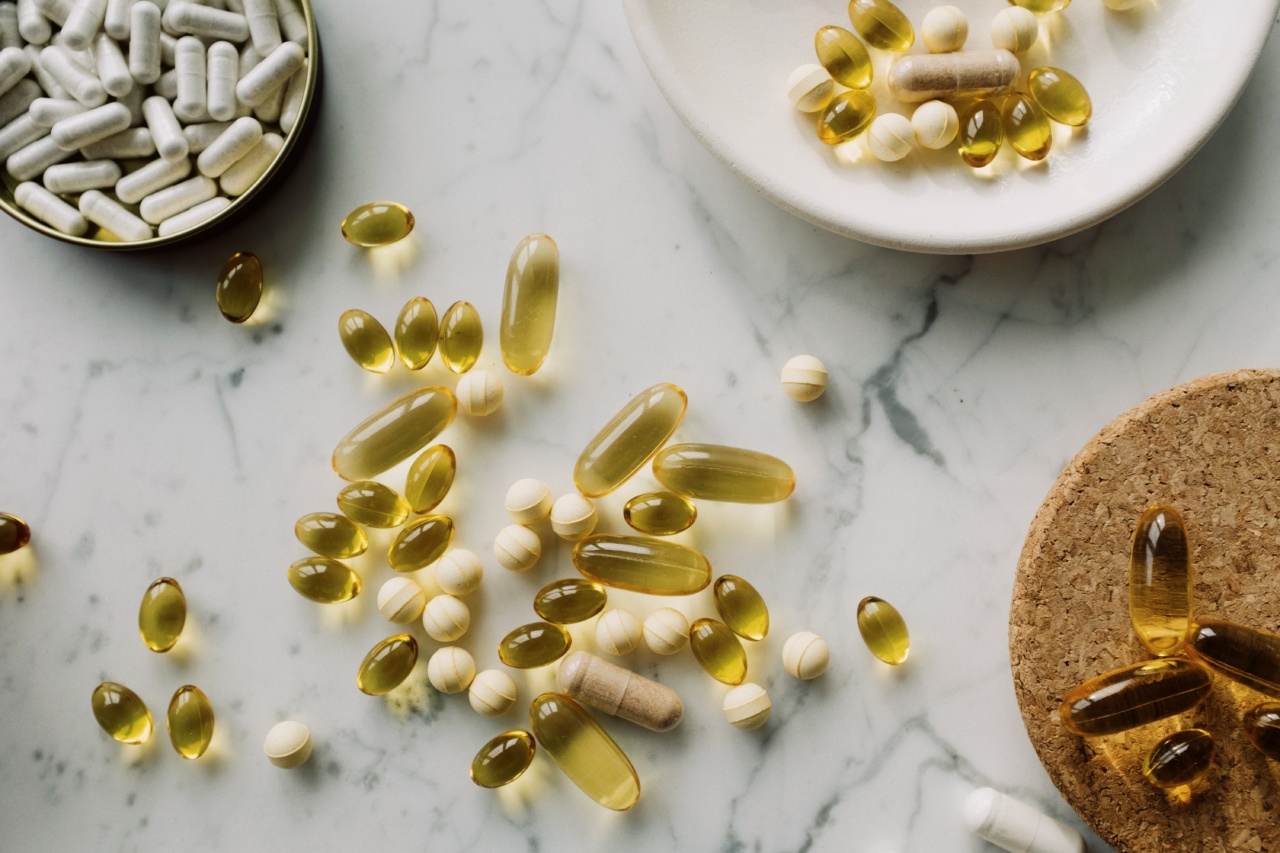Non-alcoholic fatty liver disease (NAFLD) is a common liver disorder that occurs due to the excessive accumulation of fat in liver cells. NAFLD is often seen in people who have obesity, high cholesterol levels, diabetes, and metabolic syndrome.
It is a reversible condition, but if left untreated, it can lead to serious complications like liver cirrhosis and liver failure. Vitamins play a crucial role in maintaining liver health. In this article, we will discuss the top 10 vitamins that combat non-alcoholic fatty liver disease.
Vitamin C
Vitamin C is a powerful antioxidant that protects the liver from oxidative stress, inflammation, and damage caused due to free radicals.
Studies have shown that vitamin C supplementation may reduce the levels of liver enzymes in patients with NAFLD and improve liver function. Foods rich in vitamin C include oranges, lemons, grapefruits, kiwis, and strawberries.
Vitamin E
Vitamin E is another antioxidant that helps in reducing oxidative stress and inflammation in the liver. Vitamin E supplementation has been found to improve liver function and reduce the levels of liver enzymes in patients with NAFLD.
Foods rich in vitamin E include almonds, sunflower seeds, peanuts, spinach, and avocado.
Vitamin D
Vitamin D helps in regulating the immune system and plays a crucial role in the development of liver disease. Studies have suggested that low levels of vitamin D may increase the risk of NAFLD and its progression.
Vitamin D supplementation may help in improving liver function and reducing liver fat accumulation. Foods rich in vitamin D include fatty fish, egg yolks, and fortified cereals.
Vitamin K
Vitamin K is essential for blood clotting and plays a role in maintaining liver health. Studies have found that vitamin K supplementation may reduce liver inflammation and improve liver function in patients with NAFLD.
Foods rich in vitamin K include leafy green vegetables, broccoli, and Brussels sprouts.
Vitamin B12
Vitamin B12 is important for the proper functioning of the liver and the formation of red blood cells. Studies have shown that vitamin B12 supplementation may improve liver function in patients with NAFLD.
Foods rich in vitamin B12 include meat, fish, dairy products, and fortified cereals.
Vitamin B9
Vitamin B9, also known as folic acid, plays a crucial role in the metabolism of liver enzymes. Studies have found that low levels of vitamin B9 may increase the risk of NAFLD.
Folic acid supplementation may help in reducing liver inflammation and improving liver function. Foods rich in vitamin B9 include leafy green vegetables, beans, and fortified cereals.
Vitamin B6
Vitamin B6 is important for the metabolism of liver enzymes and the proper functioning of the immune system. Studies have shown that vitamin B6 supplementation may reduce liver fat accumulation and improve liver function in patients with NAFLD.
Foods rich in vitamin B6 include bananas, poultry, fish, and fortified cereals.
Vitamin A
Vitamin A plays a role in the metabolism of liver enzymes and the regulation of the immune system. Studies have suggested that vitamin A supplementation may reduce liver fat accumulation and improve liver function in patients with NAFLD.
However, excessive intake of vitamin A may lead to liver damage. Foods rich in vitamin A include sweet potatoes, carrots, spinach, and liver.
Vitamin B1
Vitamin B1, also known as thiamin, is important for the metabolism of liver enzymes and the proper functioning of the nervous system. Studies have found that low levels of vitamin B1 may increase the risk of NAFLD.
Thiamin supplementation may help in reducing liver inflammation and improving liver function. Foods rich in vitamin B1 include whole grains, beans, and pork.
Vitamin B2
Vitamin B2, also known as riboflavin, plays a role in the metabolism of liver enzymes and the production of energy. Studies have shown that riboflavin supplementation may reduce liver fat accumulation and improve liver function in patients with NAFLD.
Foods rich in vitamin B2 include milk, eggs, almonds, and fortified cereals.


























